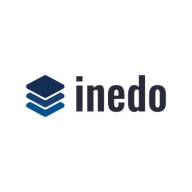

Find out what your peers are saying about GitLab, Google, GitHub and others in Build Automation.
| Product | Market Share (%) |
|---|---|
| Jenkins | 7.2% |
| Inedo BuildMaster | 1.0% |
| Other | 91.8% |

| Company Size | Count |
|---|---|
| Small Business | 28 |
| Midsize Enterprise | 15 |
| Large Enterprise | 56 |
BuildMaster lets you release your software reliably, to any environment, at whatever pace the business demands. Build a self-service release management platform by allowing different teams to manage their own applications and deploy to their own environments. BuildMaster allows you to start simple and then scale to thousands of servers and the cloud.
Jenkins is an award-winning application that monitors executions of repeated jobs, such as building a software project or jobs run by cron.
We monitor all Build Automation reviews to prevent fraudulent reviews and keep review quality high. We do not post reviews by company employees or direct competitors. We validate each review for authenticity via cross-reference with LinkedIn, and personal follow-up with the reviewer when necessary.